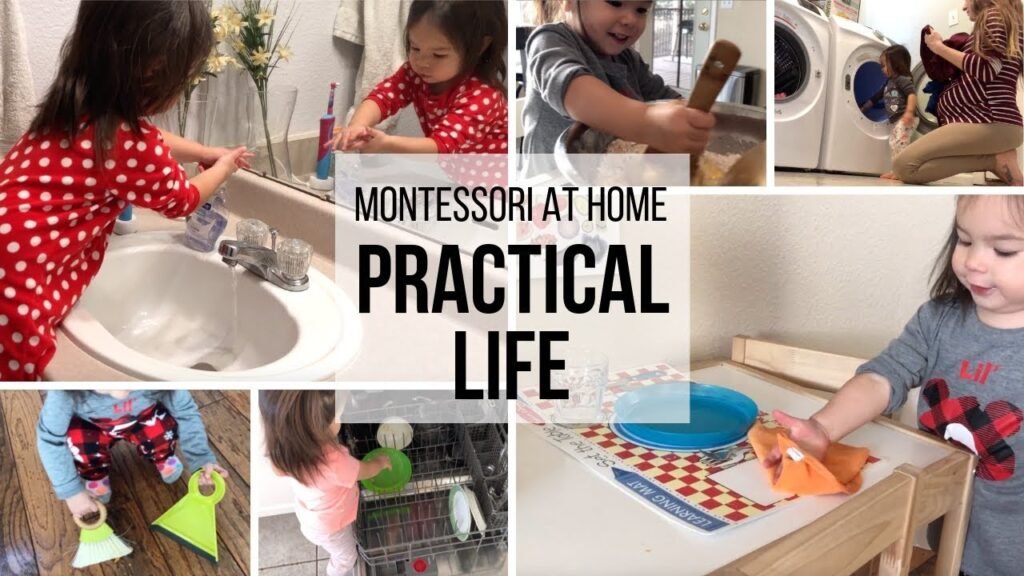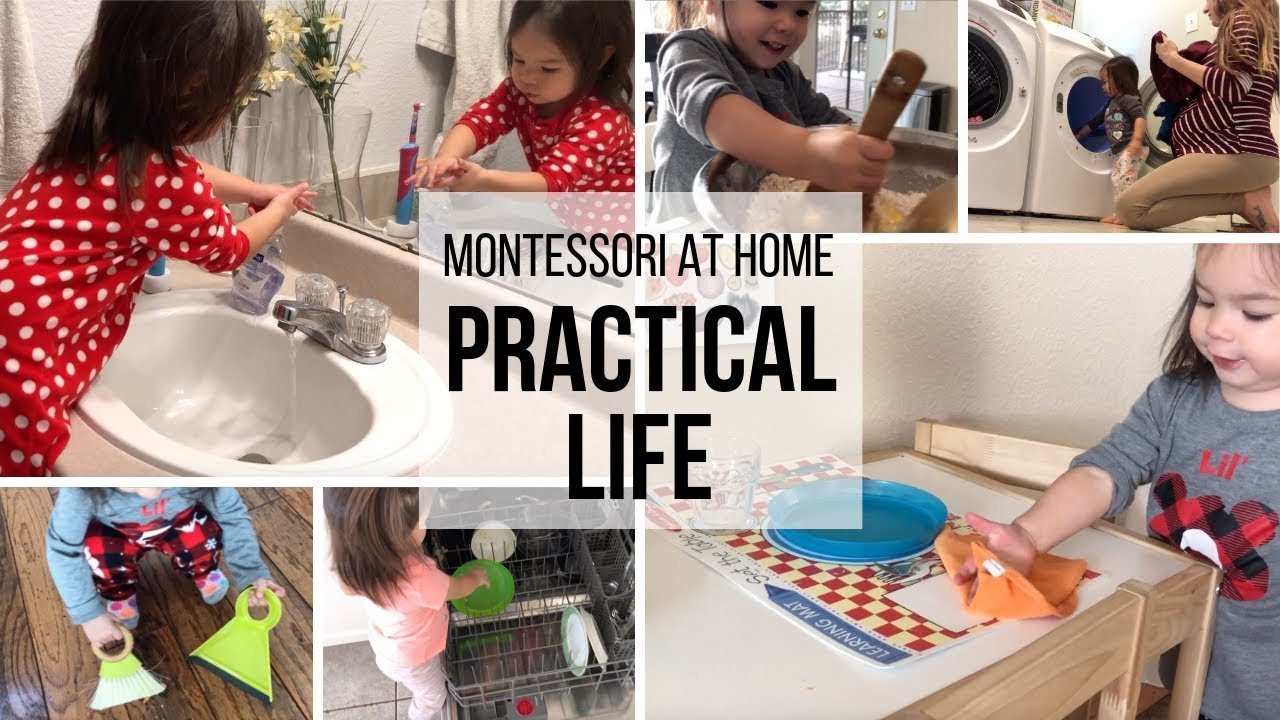In “MONTESSORI AT HOME: Practical Life for Toddlers,” Ashley from Hapa Family shares various examples of Montessori practical life activities that you can easily do with your toddler in the comfort of your own home. From simple tasks to engaging activities, this video is filled with inspiration and ideas to help you incorporate Montessori principles into your daily routine and bond with your little one in a meaningful way.
Discover the joy of implementing practical life skills in your child’s early years through this insightful video. Ashley’s genuine passion and expertise shine through as she guides you on how to create a nurturing Montessori environment that supports your toddler’s independence and development. Get ready to embark on this enriching journey of learning and growth together with your little explorer.
Introduction
If you’re looking to incorporate Montessori principles into your home to enhance your toddler’s development, understanding the philosophy behind it is key. The Montessori approach emphasizes independence, self-directed learning, and hands-on activities to foster a child’s natural curiosity and love for learning. Practical life activities are at the core of Montessori education for toddlers, focusing on everyday tasks that help them develop essential skills and build confidence.
Setting Up the Environment
To create a Montessori-friendly environment at home, designate a specific area for your toddler’s activities. This area should be accessible and inviting, with child-sized tools and materials that are safe for them to use. Organize activities on low shelves or in baskets to encourage independence and easy access for your little one.
Examples of Practical Life Activities
There are various practical life activities you can introduce to your toddler to promote independence and skill development. Pouring and transferring activities, where your child learns to pour water from one container to another, help refine their motor skills. Scooping and spooning activities enhance hand-eye coordination, while cloth folding activities teach them order and precision. Watering plants, sweeping, and mopping are also great ways to involve them in household chores from a young age.

Benefits of Practical Life Activities
Engaging in practical life activities offers a range of benefits for your toddler’s overall development. These activities help them develop fine and gross motor skills, improve coordination, and promote independence and self-care habits. By focusing on a specific task, toddlers also learn to concentrate and stay focused, boosting their attention span. As they master each activity, they build self-confidence and a sense of accomplishment.
Tips for Implementing Montessori at Home
Observe your child keenly to understand their interests and abilities before introducing new activities. Start with one activity at a time to prevent overwhelm and allow them to master each skill. Encourage repetition as it helps reinforce learning and mastery. Provide gentle guidance and support without taking over the task to empower your child’s decision-making and problem-solving skills.
Adapting Activities for Different Developmental Stages
Every child develops at their own pace, so it’s essential to tailor activities to their readiness level. You can simplify or add complexity to tasks based on your child’s abilities and interests. As they progress and master skills, gradually introduce new challenges to keep them engaged and eager to learn.
Incorporating Practical Life into Daily Routines
Integrating practical life activities into your daily routines can make learning a natural and rewarding experience for your toddler. Involve them in morning and evening rituals like dressing themselves or preparing for bedtime. Encourage their participation in meal preparation and clean-up to instill a sense of responsibility and independence. Household chores can also be transformed into fun activities for them to enjoy and learn from.
Creating a Sense of Order and Responsibility
Teaching your toddler to care for their belongings and maintain a sense of order in their environment fosters a sense of responsibility and ownership. Be a role model for organization and cleanliness, showing them the importance of tidiness and organization. Celebrate their efforts and achievements, no matter how small, to reinforce positive habits and behaviors.
Measuring Progress and Success
As your toddler engages in practical life activities, you’ll notice improvements in their skills and abilities over time. Track their milestones and achievements to see how far they’ve come and celebrate their progress. Recognizing and applauding their efforts, no matter how trivial they may seem, helps boost their self-esteem and motivates them to continue learning and growing.
Conclusion
In conclusion, Montessori practical life activities have a profound impact on a toddler’s development, fostering independence, self-confidence, and a love for learning. By incorporating these activities into your daily routines and providing a conducive environment for exploration and growth, you can help your child thrive and reach their full potential. Start implementing these Montessori principles at home today and witness the positive impact they have on your toddler’s overall development.

